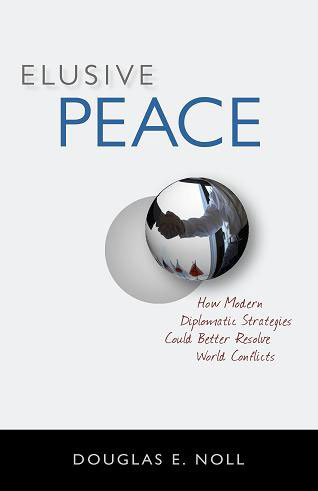In early January 2012, the Obama administration sent a letter to the Iranian government through diplomatic channels. The letter stated the consequences of an Iranian attempt to block the Strait of Hormuz and requested direct talks. Whether Iran agrees to talk remains to be seen. Certainly, the talks will be secret and low level unless they produce tangible benefits for both sides. How would a professional mediator approach these talks as a negotiator?
Understanding the interests of both the Iranian and American perspectives is a critical first step.
The Iranian government first and foremost wants to protect its power, position, and privilege from internal and external threats. The Shia Islamic regime sees as many threats from Sunni Islam as from the West. The Bush presidency handed Iran a rare opportunity to gather power and influence in the Middle East when Bush decided to topple Iran’s primary enemy, Sadaam Hussein. Since the overthrow of Hussein and his Baathist regime, Iran has increased its influence in Iraq through its support of the Iraqi Shia. Iran has an interest in preserving and increasing its influence over Iraqi politics. Likewise, Iran wishes to see the al Assad regime retain its power in Syria. Iran also wants to avoid a situation in which the United States, Turkey and Saudi Arabia, among others, decide to bring down the al Assad regime. To the east, Iran wishes to exert influence in Afghanistan and Pakistan, which are bordering countries.
In summary, the Iranian interests are regime preservation, increased political and economic influence in the region, and continued support of Shia Islamists. It does not want a war with the West.
American interests are likewise straightforward. America does not want oil supplies disrupted; it does not want failed states in the region to be sanctuaries for terrorists; it does not want a war with Iran; it does not want Islamic sectarian strife to widen or intensify; it wants stable political and economic regimes in oil producing countries; it would like to see governments in the region respect human rights more consistently; it would like to see Iran abandon nuclear weapons development. The US is or soon will be discussing peace with various Taliban elements as a prelude to exiting Afghanistan. Iran has levers it can pull in Afghanistan and Pakistan that could block those discussions. The US therefore does not want Iranian interference in talks with the Taliban.
Political realities will also influence these conversations. The initial representatives of both countries will not be high level policy makers. They will each have limited authority to make concessions and no authority to make binding agreements. Their conduct will be scrutinized by opposition elements in each country and subject to severe criticism. Thus, the early conversations will be conservative, confirmatory, and exploratory. They will be conservative because the domestic political realities will not permit a radical shift in the strategic relationship between Iran and America. They will be confirmatory as each side assesses whether their working hypotheses of each other’s interests are correct. They will be exploratory as each side tests for potential gains from continued discussions.
Negotiation style, modulated by culture, will also be an important element of preparation. The Iranians may at times demonstrate aggressive, threatening negotiating behaviors. The Iranian government wants to be respected and feared, internally and externally. National pride is significant, bringing the psychology of identity into the negotiation. American negotiators may be more linear and bottom line oriented. The negotiations might be something like rug merchant meets used car salesman. Frustration over negotiating styles should be anticipated. Preparing for a conflict in negotiation customs, methods, and styles will therefore be important.
Trust and accountability will also be an issue requiring preparation. When the value of what is being negotiated is well known and the exchange mechanisms are well-established, successful negotiations can occur with very little trust. In this negotiation there will be no easily determined valuation of interests and certainly no agreed upon exchange mechanism. Thus, trust becomes a central issue. How will each side assure itself that the other side will abide by agreements?
Similarly, the talks will have to occur secretly. However, one side or the other might see an opportunity to exploit the situation by talking to the media. Maintaining confidentiality will be a challenge.
This is a situation that calls for preparation, analysis, and role play rehearsal. The US representatives would be well-served to practice in simulated negotiation sessions that explore all of the challenges and roadblocks that might be anticipated with the Iranians. They should master a number of different negotiation processes including integrative as well as distributive processes. They should be psychologically prepared for any number of possible behaviors and have counter-tactics for each. They should be skilled at listening for what is being said and for paying close attention to what is not being said. Likewise, they should pay close attention to what they say, how they say it, and what they do not say.
These will not be mediated conversations. US-Iranian back-channel negotiations have a poor track record so there is no reason for optimism. However, conversations of any kind are better than silence and certainly better than war. The US can improve the chances of success by careful and thorough preparation of its representatives.
Buy Elusive Peace
-
Recent Posts
Recent Comments
Archives
Categories
Meta
- Your Content



